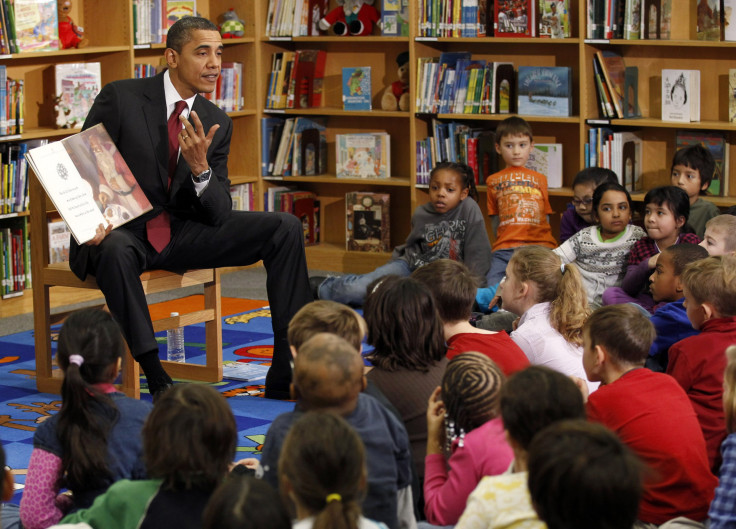Books vs. E-Books: Teens' Print Preferences Make Publishing Industry's Future Hard To Predict

For teenagers, print, amazingly, isn't dead. The generation known for staying digitally connected at all times prefers to buy and read physical books over digital ones, according to a Nielsen study released last week. As tablet, smartphone and e-reader use continues to grow in popularity, the study's results raise questions about young readers' desires and the direction of the publishing industry.
The Nielsen study found teens were surprisingly reluctant to hop on the e-book bandwagon. Only one-fifth of 13- to 17-year-olds bought e-books compared with 23 percent of 18- to 29-year-olds and a quarter of 30- to 44-year-olds. The likely reason behind this is that children are still raised on print books, said Anne Converse Willkomm, director of graduate publishing at Rosemont College in Pennsylvania. When most parents and teachers read stories to children, they do so out of physical books, and kids pick up the habit. E-books just don't look or feel right to these readers. "They just want that tactile relationship with the book that you don't get from an iPad or Kindle," Willkomm said.
This puts publishing houses in a tough situation. E-book sales in all categories are up by 53 percent, according to a Monday press release from the Association of American Publishers. Nielsen's data, even though it covered only customers' preferences, contradicts that. "The fact that the content is increasingly being made available online and even with some bells and whistles ... may not actually make that much impact," said Daniel Raff, associate professor of management at the University of Pennsylvania's Wharton School.
The Nielsen results indicate publishers should increase the size of their print runs. But if they overestimate the demand, they face costly returns where they have to take back unsold products and recycle the materials. At the same time, if they underestimate and teenage customers don't want to read the book on a tablet, they may turn to the competition, said Albert Greco, a marketing professor at Fordham University in New York. "It's a question of musical chairs," Greco said.
Overall, the United States is seeing a slow migration from print to digital. While publishers can't jump from one platform to another completely, they do have to keep up with the e-book evolution. Pants On Fire Press publisher David Powers, of Florida, said he anticipates digital books to become more like movies -- "bookvies," he calls them. They'll embed the authors' voices, animate illustrations and include link to online content.
But right now, Greco said, e-books are just not that user-friendly. Streaming movies and playing video games is easy, but reading a book online is not. That's why, for the foreseeable future, teens will keep buying physical books. "Human beings have been using print since Gutenberg ... and it's a tough habit to break," Greco said.
© Copyright IBTimes 2024. All rights reserved.






















